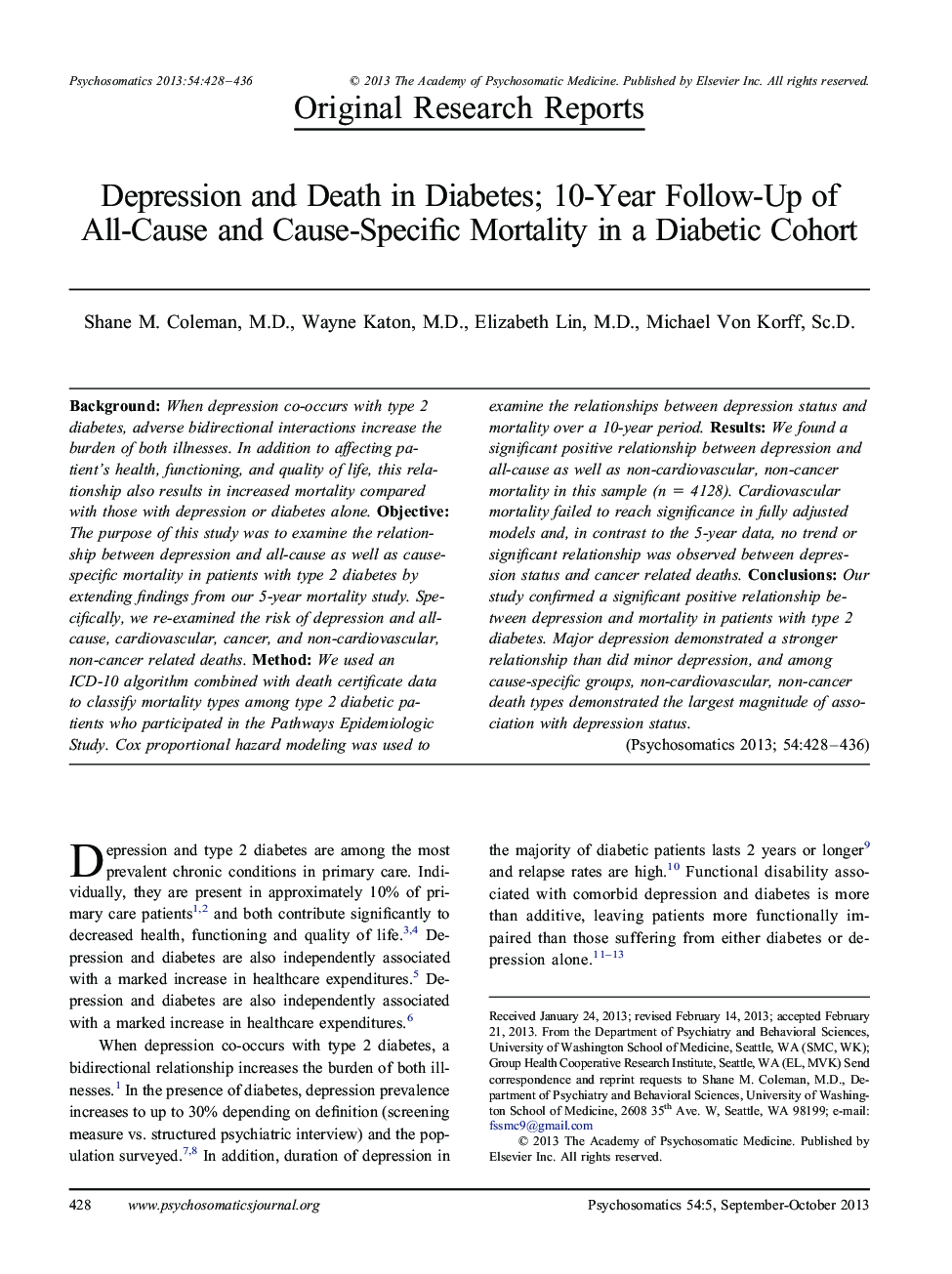| Article ID | Journal | Published Year | Pages | File Type |
|---|---|---|---|---|
| 337829 | Psychosomatics | 2013 | 9 Pages |
BackgroundWhen depression co-occurs with type 2 diabetes, adverse bidirectional interactions increase the burden of both illnesses. In addition to affecting patient's health, functioning, and quality of life, this relationship also results in increased mortality compared with those with depression or diabetes alone.ObjectiveThe purpose of this study was to examine the relationship between depression and all-cause as well as cause-specific mortality in patients with type 2 diabetes by extending findings from our 5-year mortality study. Specifically, we re-examined the risk of depression and all-cause, cardiovascular, cancer, and non-cardiovascular, non-cancer related deaths.MethodWe used an ICD-10 algorithm combined with death certificate data to classify mortality types among type 2 diabetic patients who participated in the Pathways Epidemiologic Study. Cox proportional hazard modeling was used to examine the relationships between depression status and mortality over a 10-year period.ResultsWe found a significant positive relationship between depression and all-cause as well as non-cardiovascular, non-cancer mortality in this sample (n = 4128). Cardiovascular mortality failed to reach significance in fully adjusted models and, in contrast to the 5-year data, no trend or significant relationship was observed between depression status and cancer related deaths.ConclusionsOur study confirmed a significant positive relationship between depression and mortality in patients with type 2 diabetes. Major depression demonstrated a stronger relationship than did minor depression, and among cause-specific groups, non-cardiovascular, non-cancer death types demonstrated the largest magnitude of association with depression status.
